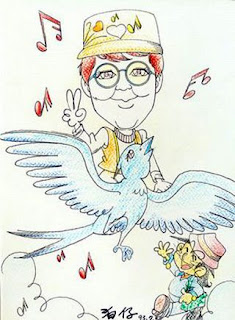The series of discussions on the definition and usage of "sex" and "gender" in national policies in Taiwan initiated by NGOs at the Review and Presentation of the ROC (Taiwan) CEDAW 3rd National Report in July, 2018 was conducted in the following order.
7. The Executive Yuan issued a guidline of Chinese to English translation regarding "gender" to all government agencies, demanding that "all the legislative texts " should be revised accordingly. No definition was given, but a list of gender-related English and Chinese terms were placed side by side. The English word "sex" disappeared.
場次:■7/16下午 □7/17上午 □ 7/17下午 2018
|
CEDAW: Article 3
|
Issue: Definitions of
Sex/ Gender (and Equality)
|
一、英文
Dear
committees,
In
represent of my own and other three Associations, I would like to talk about
the issue of definitions.
There
are no clear definitions of sex/gender in our laws (the Enforcement Act of
CEDAW and the Gender Equity Education Act), and they are confusing in the
policies. Partly because both sex and gender are translated as the same
Chinese term "性別"。Without clear definitions, it initiates a
misdirecting progress.
At
first, the terms in our legal documents are in accordance with the UN
definition-(Sex means women/men, gender means female/male). However, the
definition was latter expanded and shifted to multi-sexes and multi-gender (多元性別),and in the
end, it becomes the synonym of LGBT.
"Women"
simply disappeared! It ends up with ignoring women in the
policies.
For
example:
1.The theme of
photo competition on "Seeing gender diversity" were restricted to
LGBT. Women are not included.
2.In the
Government supported radio program Gender Equality Eazy Go, LGBT topics are
about doubled than the Women topics.
3.In the
universities, all Women study were renamed as Multi-gender study.
Women are no
longer the focus of gender equality policy or education, it's replaced by
LGBT. Many women's issues are now ignored.
Therefore, we
suggest that:
1.There should
be clear definitions of sex/gender in the laws, and they should be consistent
with UN CEDAW.
2.All the laws
should include clear definitions of gender as female and male (woman &
men), and distinguishing them from sexual orientation or gender
identity.
3.Sex should be
translated as 「性別」- as it is
showed on our ID and Passport. And, gender should be translated in a
different term, as「社會性別」.
4.Stop using the
confusing term-多元性別 (multi-gender) in all legal documents.
Delete Article 2 in the Gender Equity Education Act.
5.Follow UN's
suggestion, the Gender Equity Education Act should be corrected as Gender
"Equality" education Act.
6.The factors
for intersectional discrimination, including religion or belief, race,
ethnicity, health, age, status, class, should also be included in the law to
ensure that all women are equally treated.
|
場次:■7/16下午 □7/17上午 □ 7/17下午 2018
|
關切議題(Issue): CEDAW第三條:關於性別定義
|
二、中文
委員好:
我代表中華兒少愛滋關懷防治協會發言,我們有三個協會都關注到性別定義的議題。
在CEDAW國內施行法以及性別平等教育法當中,性別定義是令人混淆的。因為英文文件當中的Gender以及Sex都使用同一個中文詞“性別”做翻譯,因此產生混淆。缺乏明確的定義,將導致錯誤的性別觀念與錯誤的政策方向。
原本我國法律中的性別定義跟聯合國CEDAW的定義是相同的,但是後來性別的定義被擴張成為「多元性別」,甚至多元性別成了LGBTQ的同義詞。
舉例來說:
1. 行政院所舉辦的多元的性別攝影比賽,比賽主題與方向限定為LGBTQ。女人根本被排除在外。
2. 政府經費支持的電台節目性別平等Easy go節目中,與LGBTQ相關的話題是女性的兩倍。
3.大專院校原本名為婦女研究的計畫或是課程,被迫更名為性別研究課程。
女性不見了,而女性的權益因為定義寬鬆而無法被完全的保障。
所以,我們建議:
1. 在法律條文中明確定義Sex與Gender的不同,並且符合聯合國CEDAW以生理性別(男女)為基礎。
2. CEDAW國內施行法以及性別平等教育法及所有法令應該清楚的定義Sex 以及Gender,並與性傾向及性別認同加以區別。
3. Sex應該翻譯成「性別」─與我國身份證及護照上的翻譯一致。而Gender翻譯成「社會性別」。
4. 不要再使用多元性別一詞,刪除性平法第二條。避免繼續造成混淆
5. 性別平等教育的英文名(Gender Equity
Education Act)應該更名為 Gender
Equality Education Act,以符合聯合國委員對於法律達到實質平等的要求。
6. 將其他會造成交叉歧視的要素,例如種族、部落、宗教或是信仰、健康、社經地位以及年紀等條件都納入性別平等教育法案中。
|
2.
Recommendations of the CEDAW International Review Committee to the government 2018/07/20
Meaning and use of the terms “sex” and “gender”
10. The IRC is concerned with the inappropriate conceptual and practical use of the terms “sex” and “gender” in Taiwan. In the CEDAW jurisprudence the Convention refers to sexbased discrimination, but also covers gender-based discrimination against women. The term “sex” refers to biological differences between men and women. The term “gender” refers to socially constructed identities, attributes and roles for women and men and society’s social and cultural meaning for these biological differences resulting in hierarchical relationships between women and men and in the distribution of power and rights favoring men and disadvantaging women.
11. The IRC recommends the Government to align all the legislative texts and policy documents and promote the correct and consistent understanding of the terms “sex” and “gender” in line with CEDAW Convention and the Committee’s General Recommendation No. 28.
消歧公約國際審查委員會對政府的建議2018/07/20 (官方中譯)
「性」與「性別」的意義與運用
10. 審查委員會關切「性」(sex)與「性別」(gender)二詞在概念上與實際上的不 當運用。在 CEDAW 法理中,公約提及基於性的歧視,但亦涵蓋對女性基於性別 的歧視。「性」意指男女生理上的差異;「性別」意指社會建構的男女身分、歸屬 和角色,以及社會賦予這些生理差異的社會文化意義,導致男女之間的階層關係以 及權力和權利的分配有利於男性而不利於女性。
11. 審查委員會建議臺灣政府 審查委員會建議臺灣政府依照 CEDAW 和 CEDAW委員會第28號一般性建議統 號一般性建議統 一所有法律和政策文件用詞, 一所有法律和政策文件用詞,並促進對「性」與「性別」正確、一致之認知。
3. My letter to the Executive Yuan
yenlin ku 2019/07/20
A. I point out that the Chinese translation of the recommendations left out the very important words "in Taiwan". The inappropriate conceptual and practical use of the terms “sex” and “gender” actually takes place here in Taiwan and needs to be addressed.
B.The instructions sent out by the Executive Yuan were so vague that most officials failed to understand its meanings.
收件人:羅政務委員秉成、性平處吳處長秀貞、勞動部林常務次長三貴
送件人:顧燕翎
主旨:有關 第3 次國家報告(審查委員會結論性意見與建議第)1011-00-02、序號2、點次10及11)國際委員指出之重要名詞誤用
說明:
審查委員會建議台灣政府根據消歧公約的條文以及委員會第28號一般性建議,校正所有法律和政策文件用詞,提升對「生理性別」(sex)與「社會性別」(gender)這兩個名詞正確、一致之理解。
附原文:
4. Reply from the Executive Yuan 2019/07/29
They will convene a meeting to discuss this issue.行政院性平處的回覆
| Mon, 29 Jul 2019 09:56:00 |
5. The closed-door meeting was held at the Executive Yuan. The original NGOs that raised this issue was neither invited to the meeting nor informed of the conclusion. 2019/02/06
The major points made in this meeting:
以下為性平會發給各政府單位的檢視原則:
中文
|
英文
|
性別
|
Gender
|
性傾向
|
Sexual orientation
|
性侵害
|
Sexual assault
|
性騷擾
|
Sexual harassment
|
性霸凌
|
Sexual bullying
|
性別認同
|
Gender identity
|
性別特質
|
Gender traits
|
性別歧視
|
Gender discrimination
|
Neither gender should occupy less than
one-third of the seats of the committee/commission
|








沒有留言:
張貼留言